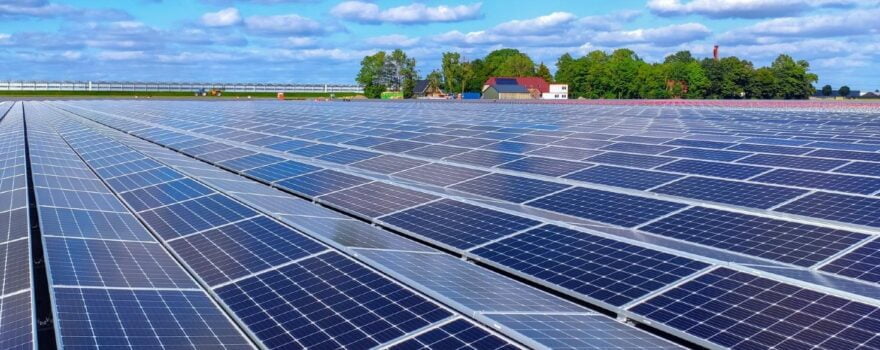
Introduction
Singapore’s agricultural sector is embracing an eco-friendly transformation by integrating solar panels. This sustainable approach not only addresses the energy needs of farms but also contributes to the country’s green initiatives. This article delves into how solar technology is revolutionizing agriculture in Singapore.
The Green Energy Shift in Agriculture
Advantages of Solar Power in Farming
- Renewable Energy Source: Solar panels offer a clean and inexhaustible energy supply, crucial for sustainable agricultural practices.
- Cost Efficiency: Long-term savings on electricity and potential government incentives make solar panels an economically attractive option for farmers.
- Conservation of Resources: Solar panels help in conserving water by reducing the need for irrigation, thanks to the shading effect they offer.
Don’t miss out on the opportunity to boost your agricultural productivity while contributing to a greener future. Contact First Solution Group today to learn more about our solar panel solutions and how we can tailor them to meet your specific needs.
Navigating the Challenges
Balancing Land Use
Given Singapore’s limited agricultural land, integrating solar panels requires strategic planning to ensure optimum land use without compromising crop yield.
Investment and Maintenance
- Initial Costs: High upfront investment can be a hurdle, but government subsidies and the promise of long-term savings provide some relief.
- Maintenance Needs: Regular upkeep is essential to maintain efficiency, adding an ongoing task for farmers.
Government Support and Initiatives
Singapore’s government actively supports the adoption of solar energy in agriculture through various programmes such as the Singapore Green Plan 2030. These initiatives not only subsidize costs but also provide technical assistance, making the transition smoother for farmers.
Additionally, the Energy Market Authority (EMA) of Singapore is working closely with various stakeholders to maximize solar deployment and address the challenges in harnessing solar energy. Innovative methods like the SolarNova programme, Floating Solar PV systems, the SolarLand programme, and Building Integrated Solar Photovoltaic (BIPV) are being employed.
These methods aim to utilize different spaces like rooftops, reservoirs, temporary vacant land, and building facades for solar installations. The EMA also introduces policy improvements, such as the Intermittency Pricing Mechanism and the Solar Aggregator Model, to facilitate solar energy deployment.
For more detailed information about the Singapore Green Plan 2030 and its initiatives, you can visit the Green Plan 2030 website. For specifics on solar energy deployment and initiatives by EMA, you can refer to the EMA’s official website.
Case Studies: Pioneers in Solar Farming
Solar-Powered Irrigation Systems: One noteworthy case study involves a local farm in Singapore that integrated solar-powered irrigation systems into their operations. By harnessing solar energy to power irrigation pumps, the farm significantly reduced its reliance on conventional electricity sources.
This not only resulted in cost savings but also ensured a more reliable and sustainable source of power for their irrigation needs. The farm’s increased water efficiency and reduced operating costs served as a compelling example for other agricultural businesses looking to enhance their sustainability.
Vertical Farming with Solar Energy: Another exciting case study features a vertical farming facility in Singapore that fully embraced solar energy solutions. Vertical farming requires controlled environments with precise lighting conditions.
By installing solar panels on the facility’s roof and utilizing solar energy to power the LED grow lights, the farm achieved substantial energy savings while maintaining optimal growing conditions. This innovative approach not only reduced the carbon footprint of the farm but also showcased the potential for sustainable urban agriculture in Singapore’s limited space.
Future Outlook: Solar Energy in Agri-tech
- Precision Agriculture: Solar energy will be a key enabler of precision agriculture. Farmers will have the capability to deploy solar-powered sensors, drones, and monitoring systems to collect real-time data on soil conditions, crop health, and weather patterns.This data-driven approach will enable precise resource allocation, leading to optimized crop yields and reduced environmental impact.
- Energy Independence: With solar energy, farms can achieve a higher degree of energy independence. They will rely less on conventional grid electricity and fossil fuels, reducing operational costs and vulnerability to energy price fluctuations. This shift towards energy self-sufficiency will enhance the overall resilience of the agricultural sector.
- Vertical Farming Revolution: Vertical farming, which relies heavily on controlled environments and artificial lighting, will see a significant boost from solar energy. Solar panels can power energy-efficient LED grow lights, making vertical farming more sustainable and economically viable.As land scarcity becomes a growing concern, vertical farming powered by solar energy will offer a solution to maximize food production in limited urban spaces.
- Integrated Farming Systems: Future agricultural systems will integrate solar energy seamlessly into farm operations. Solar panels may be integrated into greenhouse structures or used as shading devices for crops.These integrated systems will not only generate renewable energy but also create optimal growing conditions for crops, enhancing both energy and crop efficiency.
Conclusion
The adoption of solar panels in Singapore’s agriculture is a step towards a sustainable future. While challenges exist, the combined efforts of the government, technology providers, and farmers are making this green revolution a reality.
Are you ready to harness the power of solar energy for your farm or agricultural business in Singapore? First Solution Group is here to guide you through every step of the process. With our expertise in renewable energy solutions, we can help you transition smoothly to a more sustainable and cost-effective energy source.
Reach out to First Solution Group now and take the first step towards a greener, more efficient farming operation.
